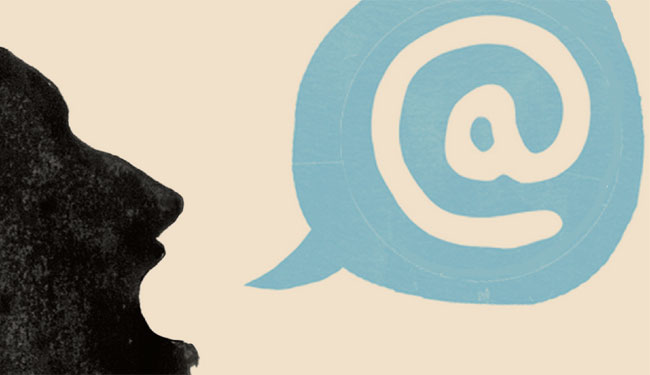TL;DR
Texting Toward Utopia
Tweets, texts, and emoticons are replacing wordy screeds among today's youth. And that's not a bad thing. By Dr. Ben Agger, Professor of Sociology

Let’s do the literary math. The average 18- to 24-year-old American sends 109 text messages daily. Assuming,
cautiously, that each text has 10 words, texting alone could produce a printed
book of about 175 pages every two years. And this doesn’t even include all of
the other writing kids do, on Facebook, Twitter, and blogs. The average young
adult is writing up a storm.
And
yet—is this “real” writing? And at what cost is it done? Teachers and parents
worry that their kids aren’t listening in class, preferring instead to focus on
their phones and Facebook. A study of college students in Texas revealed that
40 percent of the reading that college students do is online. And we elders
were taught that “real” writing does not lean on emoticons, slang, and
acronyms.
But
according to a Pew Center report, 75 percent of people under 30 read a print
book last year, compared to only 64 percent of over-30s. Beware generational
profiling, which, in describing, exaggerates.
Clearly, plenty of text is being
produced. Yet we are experiencing a decline of discourse overall as writers of
all ages choose to tweet instead of write wordy screeds that evaluate the
world’s problems. And this talkative, if post-textual, age is also an Age of
Opinion—thus, dogma displaces data. Imagine if Tom Paine tweeted Rights of
Man or Tom Hayden the Port Huron Statement. But also notice that
young public intellectuals are posting their political takes at interesting
sites such as feministing.com and dailydissident.com.
In my recent book, Texting Toward
Utopia, I stress the upsides of voluminous youthful writing, “reading” the
young for their implications, anxieties, and yearnings. Just as books are coming
unbound as pulp publishing declines, e-writers are composing e-books as well as
emails. I pore over pixelated discourse both because I was young once and now
seek solidarity with my children and students, and because young people are a
minority group who are, in effect, protesting their subaltern status.
That kids hate school should be read
as meaningful if we agree that anti-intellectualism is a significant social
problem. Kids protest in the prison code of texting and tweeting, and inhabit
the night as vampires. Urban Dictionary is their database, YouTube their means
of production. Nighttime is downtime, when they are away from the adults who
enlist them in a pre-labor force where every waking hour is devoted to
“performative”—gradable—work, all in the name of resume-building.
Adult authoritarianism abounds in schools,
families, and sports. Adults keep kids busy and alert so that they don’t
imagine different, better worlds in which work can become play and mind and
body merge. Kids understand intuitively what it means to cooperate and live off
the clock, and they model egalitarian relationships online and offline.
Kids text toward utopia because
adults have largely failed them, even as we elders are quick to blame a
distracting media culture. It is easy to observe that youth today have a
different relationship to texts than “we” did, but more challenging to read
their discourse as secret writing.
What is needed?
Libraries to be kept open and pulp publishing, including newspapers, nurtured.
Reading assigned and writing expected. Flexibility about what counts as
writing. Empathy.

















